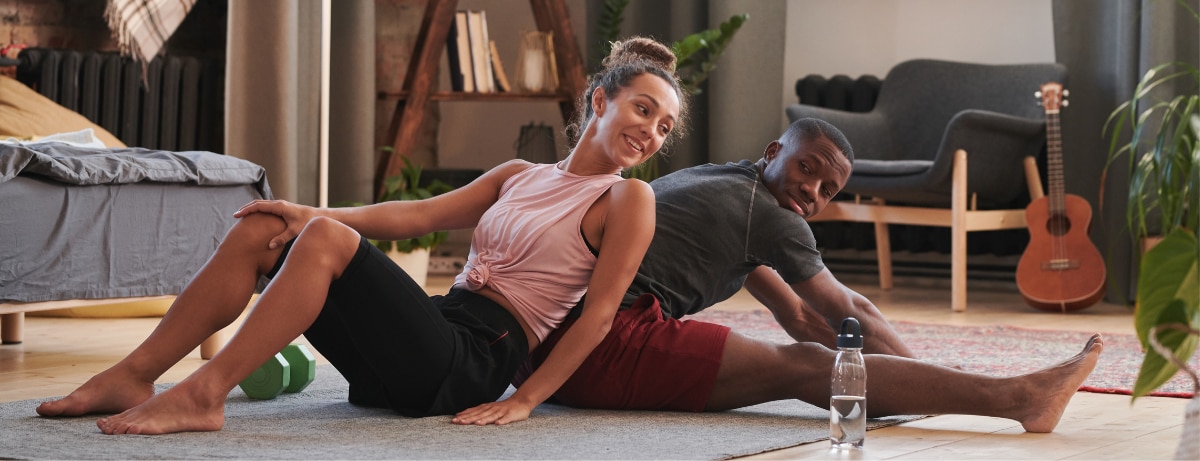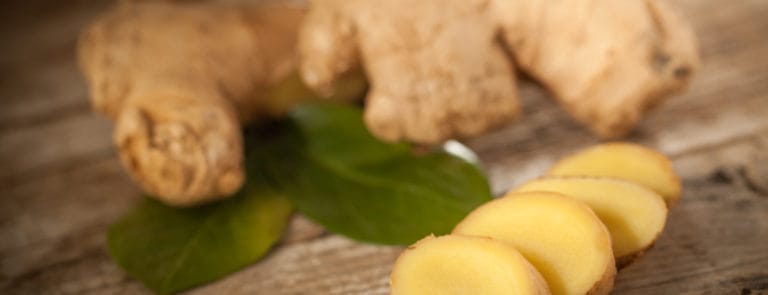10% off £30 OR 15% off £40
Code:DECIDE
Why do our joints click?

We ask an expert what might cause your joints to click, plus potential joint supplements to keep your joints healthy in the long term
Summary
1What makes our joints click?
“The medical term for cracking joints is crepitus,” explains our former Digital Health Lead, Fiona Sweny. “The cracking noise you hear is due to...
2Joint clicking risk factors
While most people experience some form of cracking joints, it can be especially common in people with hypermobility...
3How to prevent joint clicking and pain
Keeping your joints healthy and happy is the key to performing all of the movements you want to do – whether that’s looking after your kids or...
If you pop like bubble wrap every time you bend over, or can’t get through a meeting without cracking your knuckles at least once (despite the disapproving looks…), have you ever stopped to wonder what these noises could actually mean?
Well, that’s what we’re here to tell you. In this article, we highlight not only what these noises could be but also what you can do to keep your joints healthy over the long run, harnessing the expert advice of Fiona Sweny – our former Digital Health Lead.
What are joints?
A joint is the point where two bones meet to allow movement. In fact, almost every bone in our body is attached to one.1 Think of the ‘hinge’ of your knee, for example. This joint is what makes the bottom of your leg move independently from the top.2
Joints are held together and stabilised by strong tissue called ligaments.3 These help prevent the bones from getting twisted or moving too far apart and dislocating.3
They’re also protected with cartilage – a very slippery yet strong connective tissue that prevents friction from occurring as the joint surfaces glide over each other when we move.2 Some of our more flexible joints are also surrounded by something called synovial fluid, which helps lubricate them and provide extra cushioning.1,4
Joints can come in various shapes and sizes, such as the ‘ball and socket’ used by our upper arms and upper legs to connect to the body, or the ‘hinge’ of our knees, and they each have their own specific function in the body.1,2
Ultimately though, they’re designed to provide us with a wide range of movement, helping us stay active, flexible, and free of aches and pains over time.1,2
What makes our joints click?
“The medical term for cracking joints is crepitus,” explains our former Digital Health Lead, Fiona Sweny. “The cracking [or clicking] noise you hear is due to gas within the joint being released.” 5,6
So basically, that clicking noise is usually the sound of bubbles popping inside you!6,7
It’s so far been thought that this could be because the partial pressure of carbon dioxide, which surrounds the synovial fluid, decreases, paving way for the cracking noise when carbon dioxide is released as a gas bubble into the joint cavity as the synovial fluid flows in the lower pressure region. Slowly, the gas bubbles burst and the popping noise can be heard.6,7
“[The clicking noise] can also be anatomical,” as Fiona goes on to explain. “If a ligament flicks over a bony prominence, for example, this can cause the cracking noise. However, noisy joints are very common and rarely a cause for concern.”
But what if you intentionally crack your joints? Is it true that that can contribute to other conditions like arthritis?
Well, the good news is that science so far says no.9
That doesn’t mean there’s absolutely zero relationship between arthritis and clicking joints – some people with arthritis find that they get painful, clicking joints due to the condition damaging their cartilage.8
Joint clicking risk factors
While most people experience some form of cracking joints, it can be especially common in people with hypermobility.10
People with hypermobility can extend their joints outside the normal range of movement. However, because their joints can easily stretch further apart, air cavities form and can cause crepitus10, 11, 12
Hypermobile or not, you might also notice that your joints click more as you get older.10 This could be because the surrounding cartilage will start to naturally wear down over time.13,14
This can also be connected to conditions like osteoarthritis.10 So if you start experiencing noises like grating or crunching as you age, it could be a sign of osteoarthritis and you might want to speak to your GP.10
How to prevent joint clicking and pain
Keeping your joints healthy and happy is the key to performing all of the movements you want to do – whether that’s looking after your kids or playing sports. And thankfully, there’s some research to suggest that the following factors could support your joints and possibly reduce the effects of joint clicking/crepitus.
One of the best ways to look after our joints is to use them!
Performing weight-bearing exercises, such as brisk walking and dancing, or resistance training exercises, like weightlifting, can put pressure or stress on your bones, forcing them to work harder and stay strong.5,13
Exercise can also help increase your skeletal muscle mass as well as potentially reduce the effects of crepitus.15,16 Skeletal muscles are the muscles that connect to your bones and help you to keep moving, which is also important to maintain, with one animal study suggesting that exercise can help alleviate joint swelling and disease severity in joints, and potentially improve skeletal muscle too. Although this seems promising, more research in human populations is required.17,18, 19
Even if you have a condition like arthritis, you’re advised to move your body where you can to help maintain good muscle strength.11 In fact, some research has found that living a sedentary lifestyle can exacerbate the symptoms of rheumatoid arthritis due to the impact regular exercise can have on reducing inflammation and fatigue.20, 21,22
One of the other benefits of engaging in regular exercise is that it may help you to maintain a healthy weight – a factor researchers believe could help keep your joints healthy. This could be because being at a higher weight may increase friction of the joint cartilage, decrease muscle strength and result in joint pain.21,23,24
Importantly, however, being underweight due to malnutrition could also increase your risk of broken bones and conditions like osteoporosis.25,26
Although more research is needed in both these areas, it’s important to maintain an overall balanced, healthy diet that fulfils all of your nutrition needs and in turn supports your joint health.27
Making sure you get plenty of certain vitamins and minerals could also play a role in supporting your joint health. But which supplements are best for maintaining healthy joints?
The below are thought to contribute to your joint health.
Calcium
Calcium can help build your bones and keep them healthy, making regular intake essential when looking to take care of your joints.14 In fact, not having enough calcium can potentially lead to the development of osteoporosis later in life.26,28,29
Luckily, most people can get the calcium they need through a balanced diet, including dairy, green leafy vegetables, fortified bread and plant-based milk.26,28 However, if you’re deficient, you may be recommended to take a calcium supplement.
Collagen
Your bones and cartilage are also mainly made from a substance called collagen, which naturally declines as you get older.30,31,32 Limited research shows that collagen supplements might help to combat this and help manage joint pain.32,33,34,35
Vitamin C
Vitamin C has also been shown to promote healthy collagen production and can be found in many common foods.36,37,38 You can make sure you’re consuming plenty of vitamin C by including foods like citrus fruits and broccoli in your diet.38,39
Taking vitamin C supplements could also help you boost your intake, some emerging studies suggest; however, more scientific data in the human population is needed.40,41
A note on supplements: remember, it’s important to speak to your GP about adding any kind of supplement to your diet.
The final say
While cracking joints isn’t usually a sign of arthritis or anything more serious, it’s important to take good care of your joints and bone health.5,8
To do this most effectively, you can focus on staying fit, active, and within a weight range that’s healthy for you.
While we strive for accuracy and balance, please be aware that this article may discuss products available for purchase through Holland & Barrett. Consult a healthcare professional before making any health-related decisions.
The advice in this article is for information only and should not replace medical care. Please check with your GP or healthcare professional before trying any supplements, treatments or remedies. Food supplements must not be used as a substitute for a varied and balanced diet and healthy lifestyle.
- Juneja, P., et al. ‘Anatomy, Joints’. PubMed. Treasure Island (FL): StatPearls Publishing. 2021. Available from: https://www.ncbi.nlm.nih.gov/books/NBK507893/.
- NHS. Bone and joint problems – a guide for families [Internet]. [Cited 2024 Mar 7]. Available from: https://www.gosh.nhs.uk/wards-and-departments/departments/clinical-specialties/limb-reconstruction-unit/bone-and-joint-problems-guide-families/.
- InformedHealth.org. What are ligaments? [Internet]. Institute for Quality and Efficiency in Health Care. 2018. [Cited 2024 Mar 7]. Available from: https://www.ncbi.nlm.nih.gov/books/NBK525790/.
- Seidman AJ, Faten Limaiem. Synovial Fluid Analysis [Internet]. Nih.gov. StatPearls Publishing; 2023 [cited 2024 May 9]. Available from: https://www.ncbi.nlm.nih.gov/books/NBK537114/
- Sethi A. Bacterial Skin and Soft Tissue Infections in the Tropics. Elsevier eBooks [Internet]. 2020 Jan 1 [cited 2024 May 9];555–7. Available from: https://www.sciencedirect.com/topics/medicine-and-dentistry/crepitus
- Dunning J, Mourad F, Barbero M, Leoni D, Corrado Cescon, Butts RJ. Bilateral and multiple cavitation sounds during upper cervical thrust manipulation. BMC musculoskeletal disorders [Internet]. 2013 Jan 15 [cited 2024 May 9];14(1). Available from: https://bmcmusculoskeletdisord.biomedcentral.com/articles/10.1186/1471-2474-14-24
- Juneja P, Munjal A, Hubbard JB. Anatomy, Joints [Internet]. Nih.gov. StatPearls Publishing; 2023 [cited 2024 May 9]. Available from: https://www.ncbi.nlm.nih.gov/books/NBK507893/
- V. Chandran Suja, Barakat AI. A Mathematical Model for the Sounds Produced by Knuckle Cracking. Scientific reports [Internet]. 2018 Mar 29 [cited 2024 May 9];8(1). Available from: https://www.nature.com/articles/s41598-018-22664-4
- deWeber K, Olszewski M, Ortolano R. Knuckle Cracking and Hand Osteoarthritis. Journal of the American Board of Family Medicine [Internet]. 2011 Mar 1 [cited 2024 May 9];24(2):169–74. Available from: https://www.jabfm.org/content/24/2/169
- Shepherd, R., et al. Why your joints pop and crack [Internet]. The Independent. [Cited 2024 Mar 7]. Available from: https://www.independent.co.uk/news/health/why-joints-pop-crack-arthritis-disease-a8825276.html.
- Joint hypermobility [Internet]. NHS inform. 2024 [cited 2024 May 9]. Available from: https://www.nhsinform.scot/illnesses-and-conditions/muscle-bone-and-joints/conditions/joint-hypermobility/#causes-of-joint-hypermobility
- NHS Choices. Joint hypermobility syndrome [Internet]. 2024 [cited 2024 May 9]. Available from: https://www.nhs.uk/conditions/joint-hypermobility-syndrome/
- Sang Jun Song, Cheol Hee Park, Liang H, Sang Jun Kim. Noise around the Knee. Clinics in orthopedic surgery [Internet]. 2018 Jan 1 [cited 2024 May 9];10(1):1–1. Available from: https://www.ncbi.nlm.nih.gov/pmc/articles/PMC5851845/
- Clapp IM, Paul KM, Beck EC, Nho SJ. Hypermobile Disorders and Their Effects on the Hip Joint. Frontiers in surgery [Internet]. 2021 Mar 25 [cited 2024 May 9];8. Available from: https://www.ncbi.nlm.nih.gov/pmc/articles/PMC8027473/
- 7National Institute of Arthritis and Musculoskeletal and Skin Diseases. Exercise for Your Bone Health [Internet]. [Cited 2024 Mar 7]. Available from: https://www.niams.nih.gov/health-topics/exercise-your-bone-health.
- Francaux, M., et al. ‘Exercise and the control of muscle mass in human.’ Pflugers Archiv: European Journal of Physiology. 2019;471(3):397–411. Available from: https://doi.org/10.1007/s00424-018-2217-x.
- Ferraro E, Anna Maria Giammarioli, Chiandotto S, Ilaria Spoletini, Rosano G. Exercise-Induced Skeletal Muscle Remodeling and Metabolic Adaptation: Redox Signaling and Role of Autophagy. Antioxidants & redox signaling [Internet]. 2014 Jul 1 [cited 2024 May 9];21(1):154–76. Available from: https://www.ncbi.nlm.nih.gov/pmc/articles/PMC4048572/
- National Cancer Institute. Structure of Skeletal Muscle [Internet]. [Cited 2024 Mar 7]. Available from: https://training.seer.cancer.gov/anatomy/muscular/structure.html.
- Huffman KM, Andonian BJ, Abraham DM, Akshay Bareja, Lee DE, Katz LH, et al. Exercise protects against cardiac and skeletal muscle dysfunction in a mouse model of inflammatory arthritis. Journal of applied physiology [Internet]. 2021 Mar 1 [cited 2024 May 9];130(3):853–64. Available from: https://www.ncbi.nlm.nih.gov/pmc/articles/PMC7988790/
- Metsios, GS., et al. ‘Physical activity, exercise and rheumatoid arthritis: Effectiveness, mechanisms and implementation.’ Best Practice & Research Clinical Rheumatology. 2018;32(5):669–82. Available from: https://doi.org/10.1016/j.berh.2019.03.013.
- Masruroh, E., et al. ‘Obesity Factors on The Incidence of Joint Pain of Elderly.’ Journal of Nursing and Midwifery. 2021;8(2):206–10. Available from: https://www.researchgate.net/publication/354179791_Obesity_Factors_on_The_Incidence_of_Joint_Pain_of_Elderly
- NHS Choices. Living with arthritis - Arthritis [Internet]. 2024 [cited 2024 May 9]. Available from: https://www.nhs.uk/conditions/arthritis/living-with/
- The association between chronic pain and obesity [Internet]. Journal of Pain Research. 2015 [cited 2024 May 9]. Available from: https://www.tandfonline.com/doi/full/10.2147/JPR.S55598
- Lee S, Kim TN, Kim SH. Sarcopenic obesity is more closely associated with knee osteoarthritis than is nonsarcopenic obesity: A cross‐sectional study. Arthritis and rheumatism [Internet]. 2012 Nov 28 [cited 2024 May 9];64(12):3947–54. Available from: https://pubmed.ncbi.nlm.nih.gov/23192792/
- Park, S-M., et al. ‘Underweight and risk of fractures in adults over 40 years using the nationwide claims database.’ Scientific Reports. 2023;13(1):8013. Available from: https://doi.org/10.1038/s41598-023-34828-y.
- NHS. Calcium - Vitamins and minerals [Internet]. [Cited 2024 Mar 7]. Available from: https://www.nhs.uk/conditions/vitamins-and-minerals/calcium/.
- Joint associations of regular exercise and healthy diet with psychobiological stress reactivity in a healthy male sample. Stress [Internet]. 2021 [cited 2024 May 9]; Available from: https://www.tandfonline.com/doi/full/10.1080/10253890.2021.1878496
- Office of Dietary Supplements - Calcium [Internet]. Nih.gov. 2014 [cited 2024 May 9]. Available from: https://ods.od.nih.gov/factsheets/Calcium-HealthProfessional/#:~:text=Calcium%2C%20the%20most%20abundant%20mineral,%2C%20and%20flexible%20%5B1%5D
- Sunyecz JA. The use of calcium and vitamin D in the management of osteoporosis. Therapeutics and clinical risk management [Internet]. 2008 Aug 1 [cited 2024 May 9];Volume 4:827–36. Available from: https://www.ncbi.nlm.nih.gov/pmc/articles/PMC2621390/
- König, D., et al. ‘Specific Collagen Peptides Improve Bone Mineral Density and Bone Markers in Postmenopausal Women—A Randomized Controlled Study.’ Nutrients. 2018;10(1):97. Available from: https://doi.org/10.3390/nu10010097.
- Burr, DB. ‘Changes in bone matrix properties with aging.’ Bone. 2019;120:85–93. Available from: https://doi.org/10.1016/j.bone.2018.10.010.
- Martínez-Puig D, Costa-Larrión E, Nuria Rubio-Rodríguez, Gálvez-Martín P. Collagen Supplementation for Joint Health: The Link between Composition and Scientific Knowledge. Nutrients [Internet]. 2023 Mar 8 [cited 2024 May 9];15(6):1332–2. Available from: https://www.ncbi.nlm.nih.gov/pmc/articles/PMC10058045/
- Park KS, Park MJ, Cho ML, Kwok SK, Ji Hyeon Ju, Ko HJ, et al. Type II collagen oral tolerance; mechanism and role in collagen-induced arthritis and rheumatoid arthritis. Modern rheumatology [Internet]. 2009 Aug 21 [cited 2024 May 9];19(6):581–9. Available from: https://pubmed.ncbi.nlm.nih.gov/19697097/
- Lin CR, Huang S, Huang KY, Tsai PA, Chou H, Chang SH. Analgesic efficacy of collagen peptide in knee osteoarthritis: a meta-analysis of randomized controlled trials. Journal of orthopaedic surgery and research [Internet]. 2023 Sep 16 [cited 2024 May 9];18(1). Available from: https://josr-online.biomedcentral.com/articles/10.1186/s13018-023-04182-w
- Wang H. A Review of the Effects of Collagen Treatment in Clinical Studies. Polymers [Internet]. 2021 Nov 9 [cited 2024 May 9];13(22):3868–8. Available from: https://www.ncbi.nlm.nih.gov/pmc/articles/PMC8620403/
- DePhillipo, NN., et al. ‘Efficacy of Vitamin C Supplementation on Collagen Synthesis and Oxidative Stress After Musculoskeletal Injuries: A Systematic Review.’ Orthopaedic Journal of Sports Medicine. 2018;6(10):232596711880454. Available from: https://doi.org/10.1177/2325967118804544.
- NHS. Vitamin C - Vitamins and minerals [Internet]. [Cited 2024 Mar 7]. Available from: https://www.nhs.uk/conditions/vitamins-and-minerals/vitamin-c/.
- Office of Dietary Supplements - Vitamin C [Internet]. Nih.gov. 2020 [cited 2024 May 9]. Available from: https://ods.od.nih.gov/factsheets/VitaminC-HealthProfessional/
- Chiu PR, Hu YC, Huang TC, Hsieh BS, Yeh JP, Cheng HL, et al. Vitamin C Protects Chondrocytes against Monosodium Iodoacetate-Induced Osteoarthritis by Multiple Pathways. International journal of molecular sciences [Internet]. 2016 Dec 27 [cited 2024 May 9];18(1):38–8. Available from: https://www.mdpi.com/1422-0067/18/1/38
- Ripani U, Paloma Manzarbeitia-Arroba, Guijarro-Leo S, Urrutia-Graña J, De A. Vitamin C May Help to Reduce the Knee’s Arthritic Symptoms. Outcomes Assessment of Nutriceutical Therapy. Medicinski arhiv [Internet]. 2019 Jan 1 [cited 2024 May 9];73(3):173–3. Available from: https://www.ncbi.nlm.nih.gov/pmc/articles/PMC6643354/
- Dunlap B, G Taylor Patterson, Kumar S, Sagar Vyavahare, Mishra S, Isales C, et al. Vitamin C supplementation for the treatment of osteoarthritis: perspectives on the past, present, and future. Therapeutic advances in chronic disease [Internet]. 2021 Jan 1 [cited 2024 May 9];12:204062232110470-204062232110470. Available from: https://www.ncbi.nlm.nih.gov/pmc/articles/PMC8543556/
Related Articles
Shop by wellness goal
Sign up for exclusive offers
Plus, get expert advice to support your health & wellness straight to your inbox when you sign up to Holland & Barrett emails.
Read our
privacy policy














